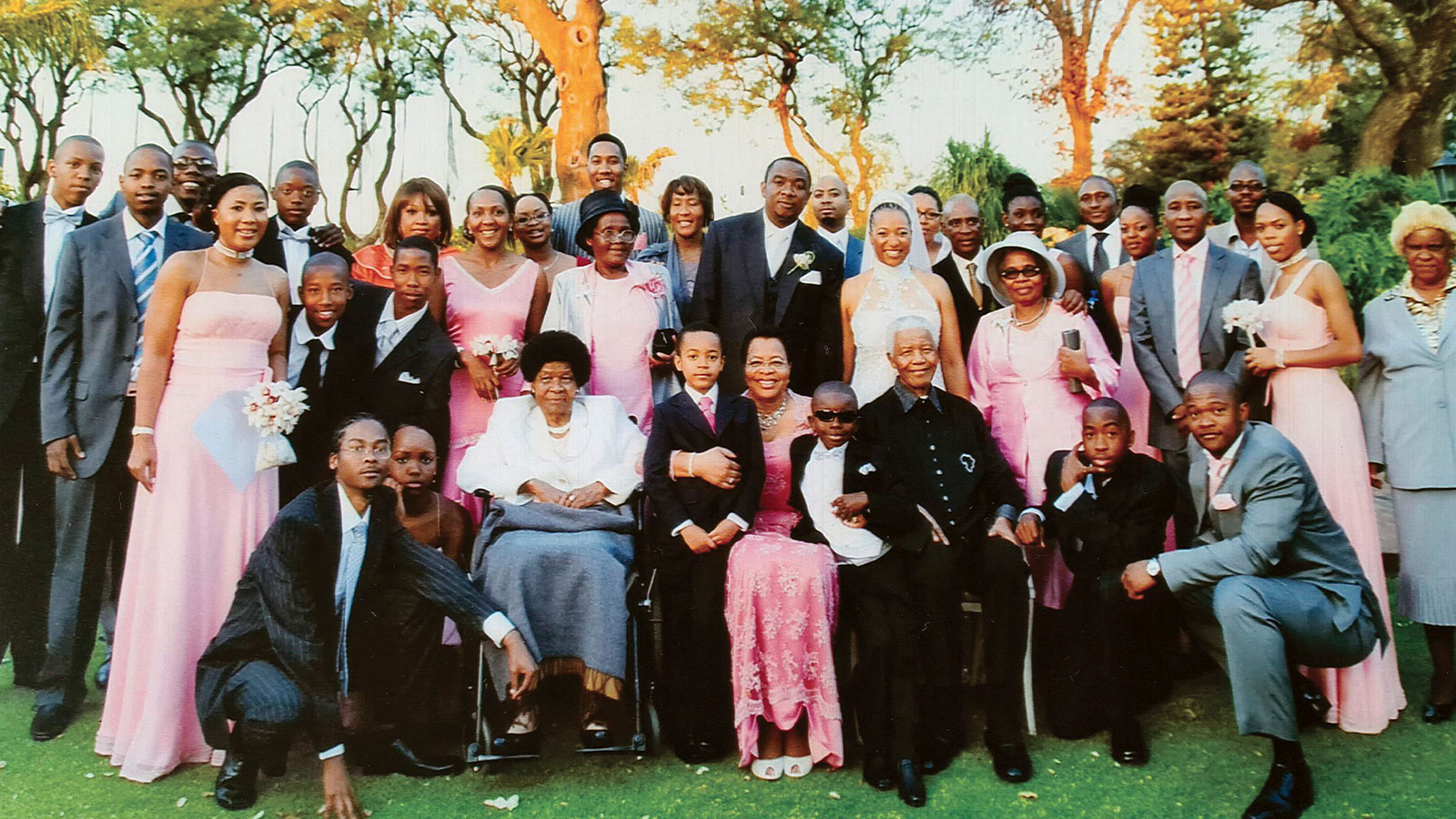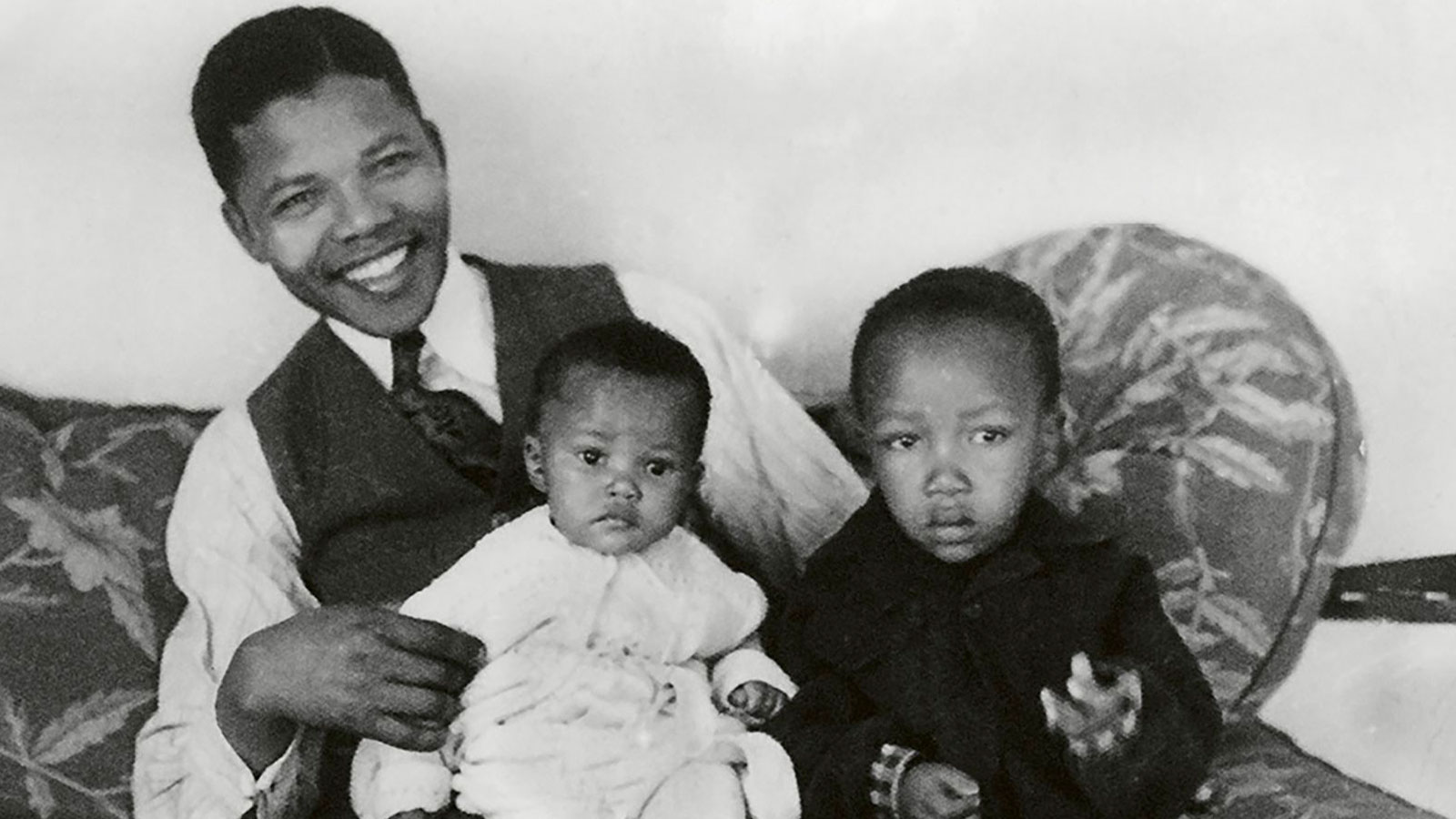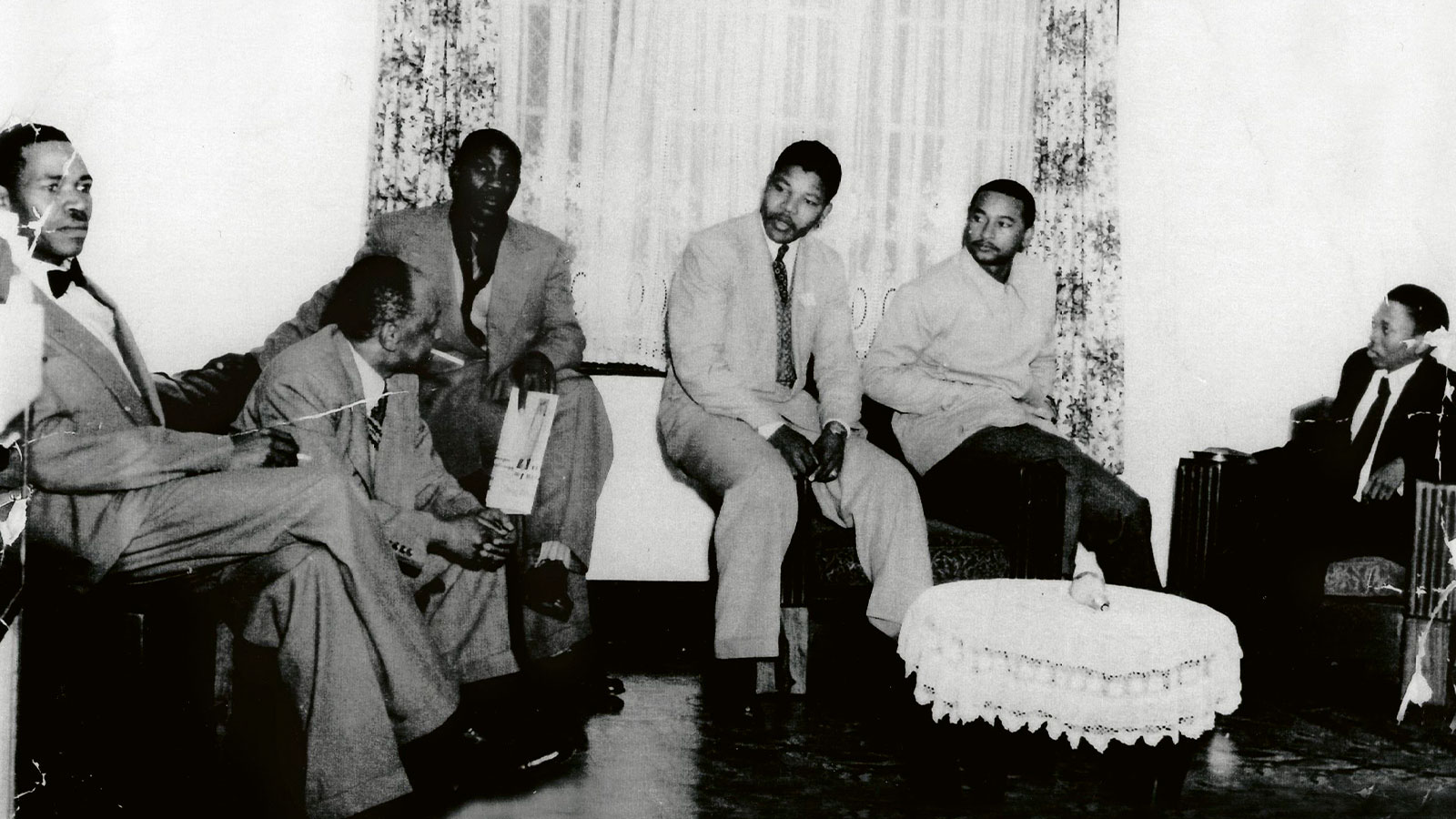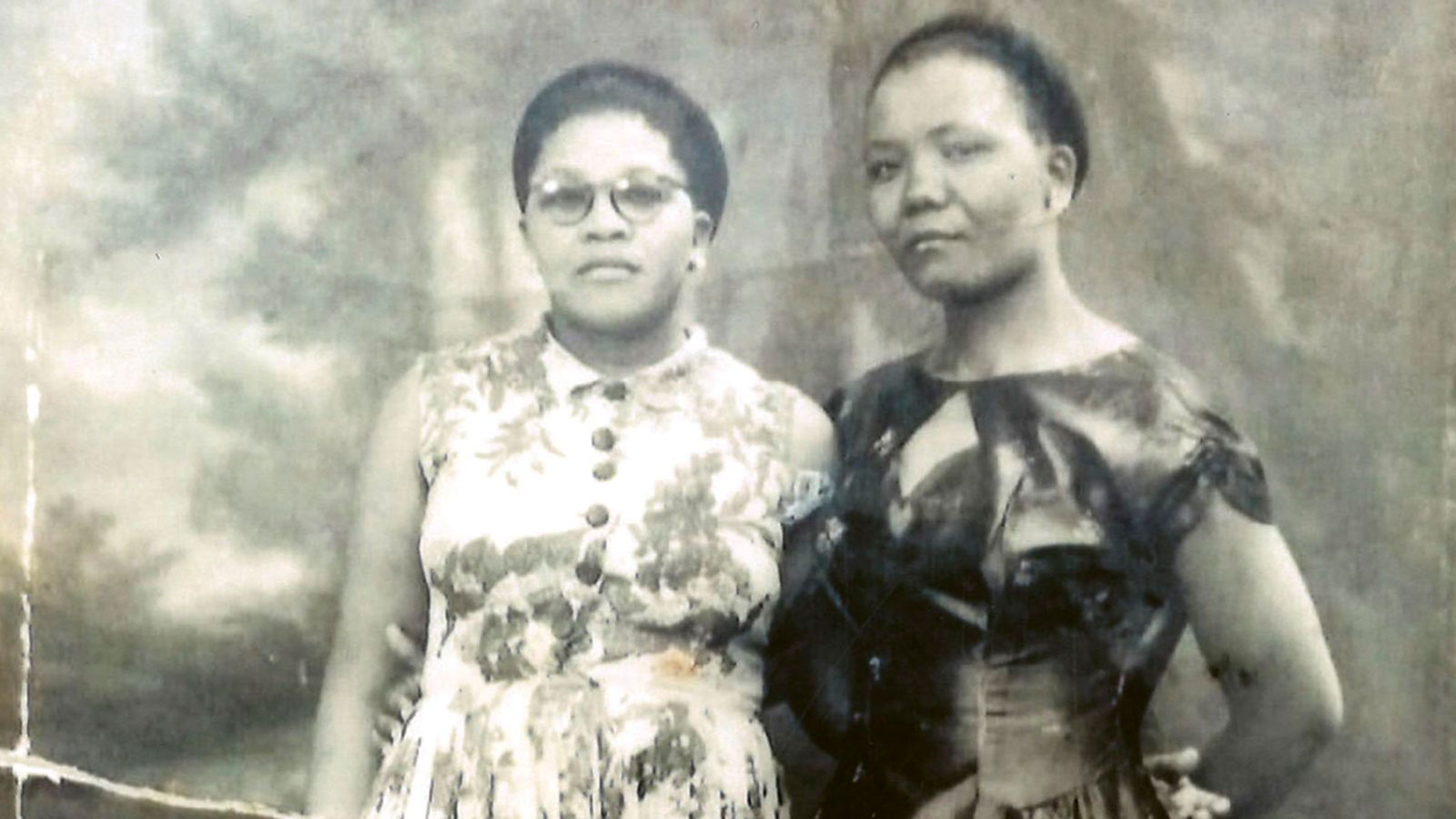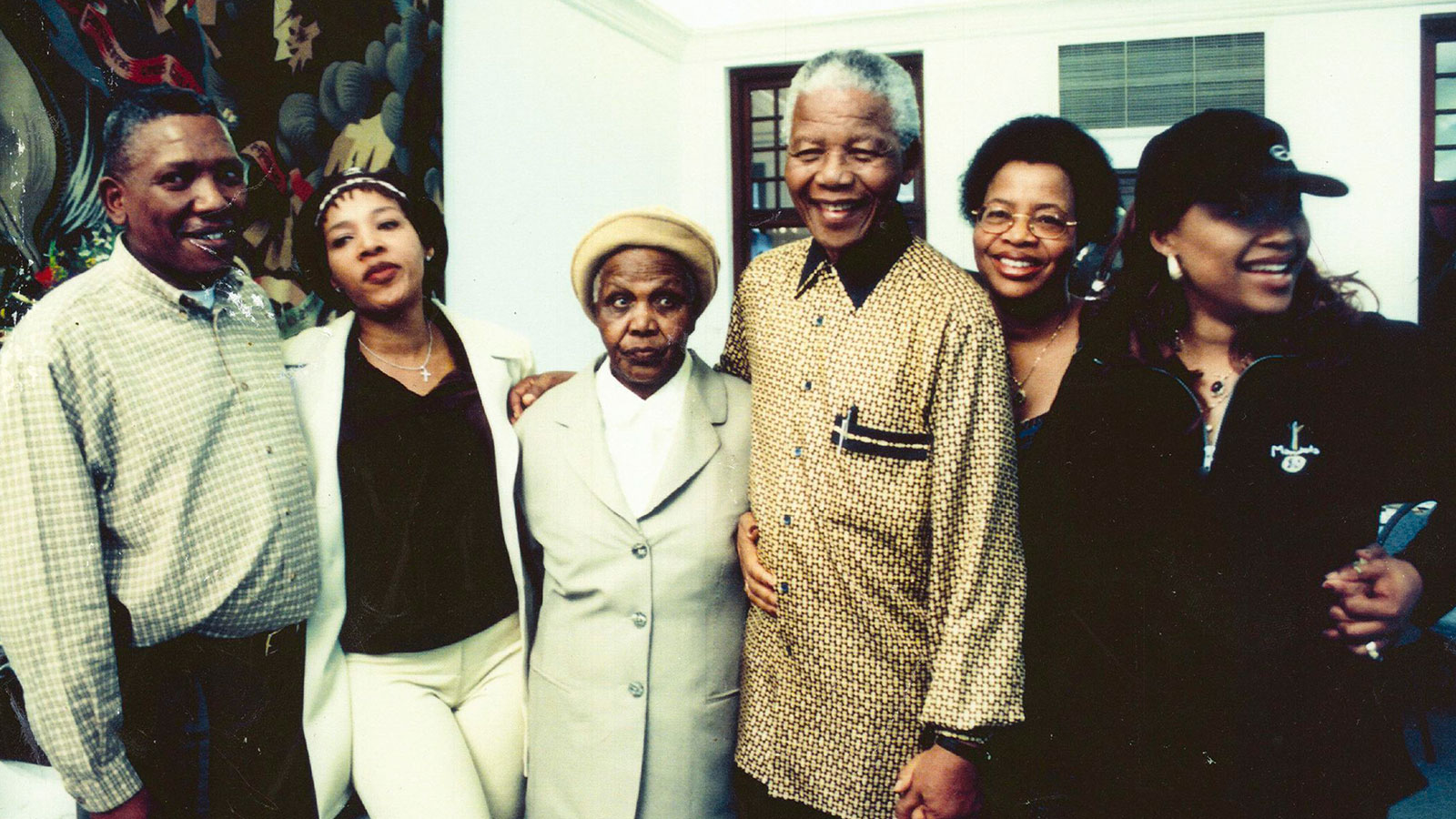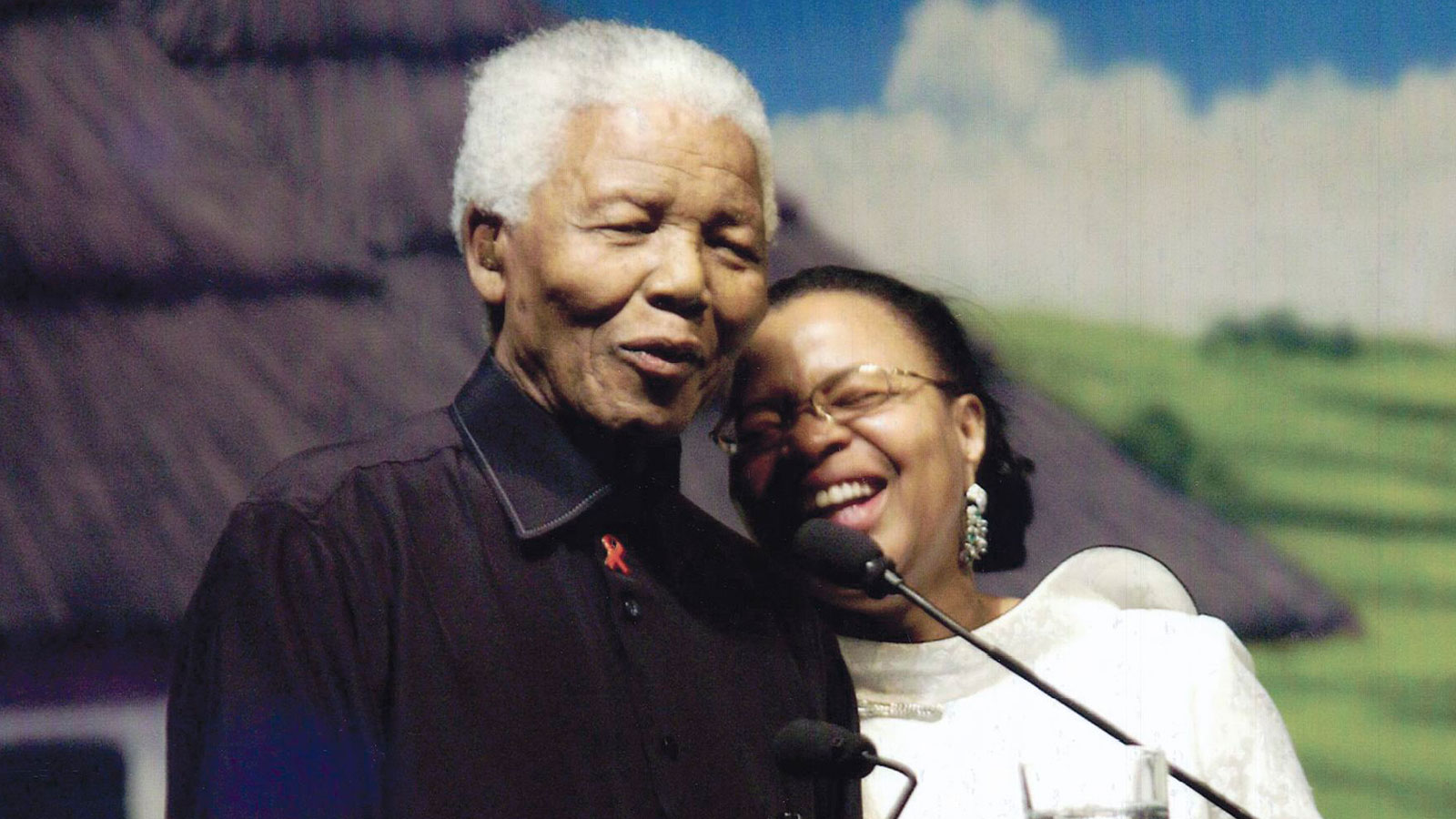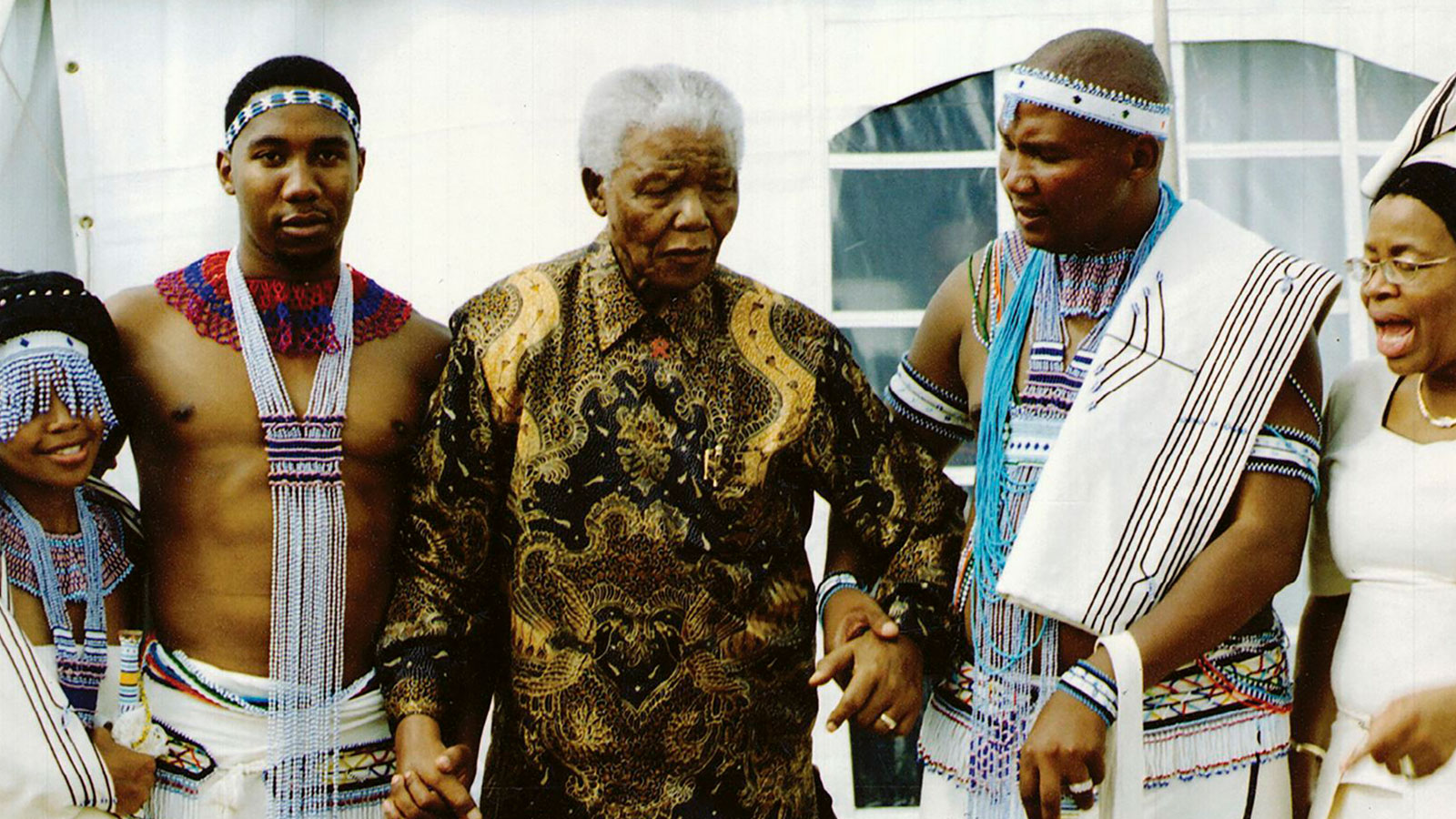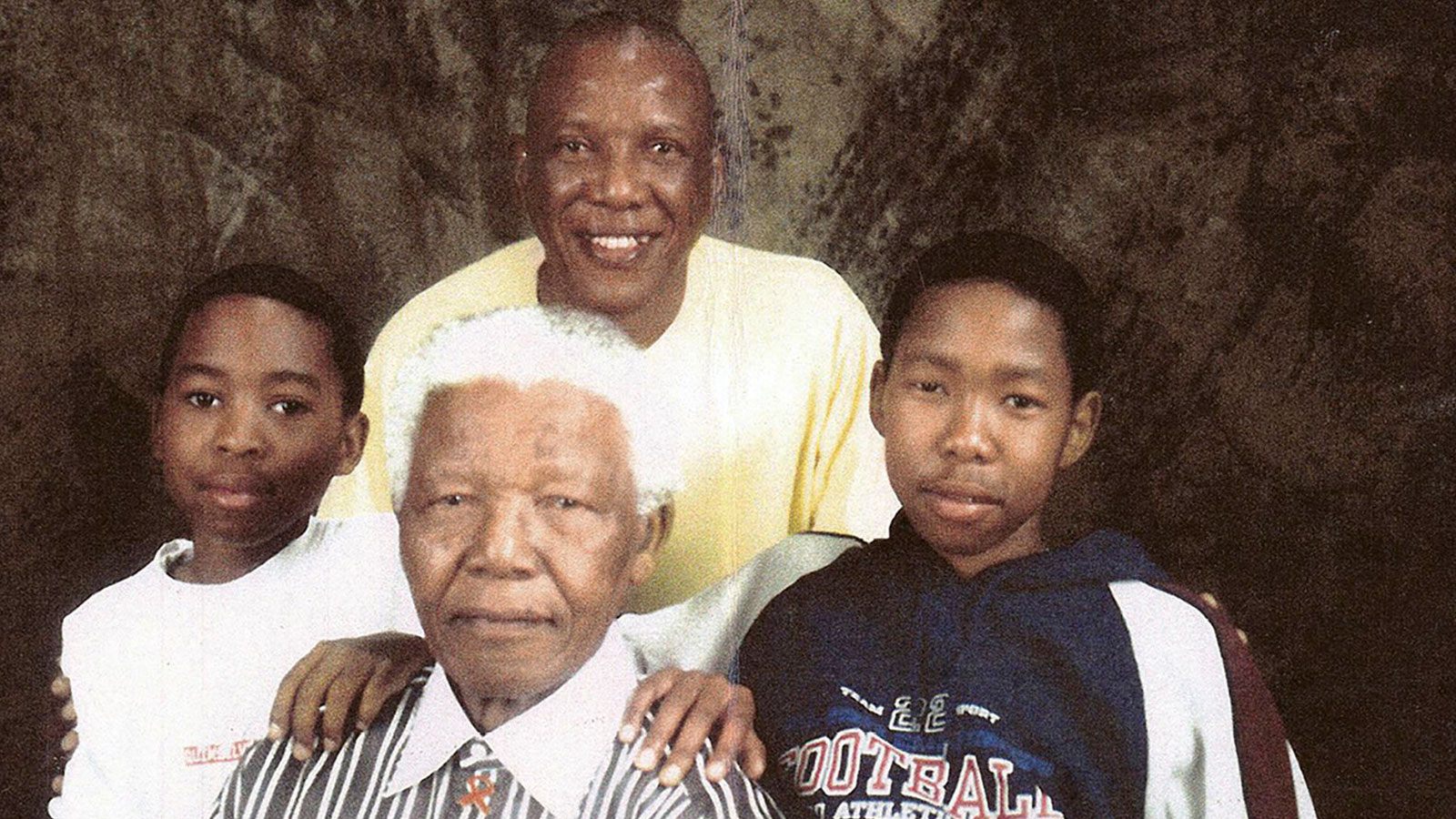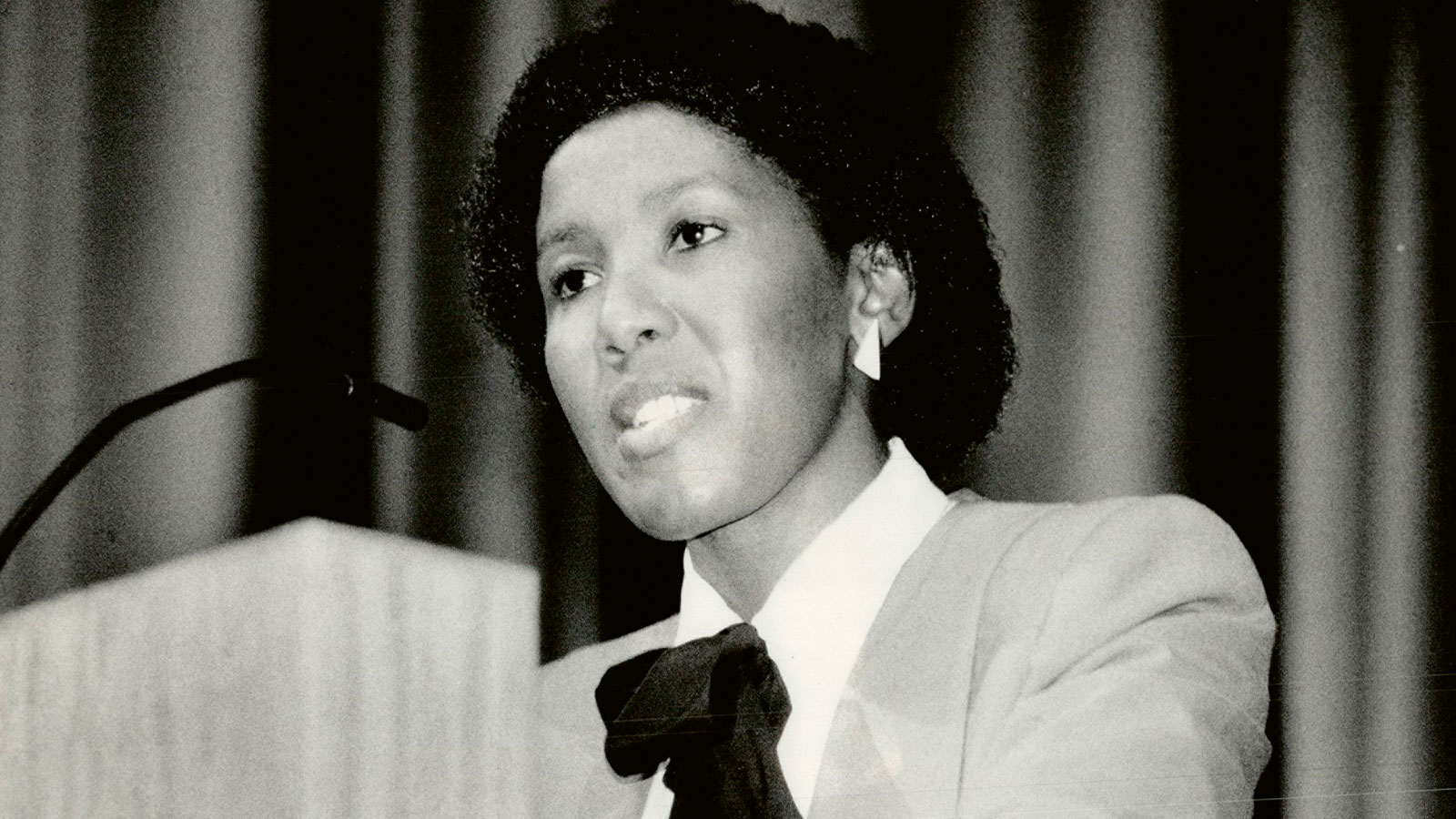A coffee table book authored by Nelson Mandela’s daughter, Dr. Pumla Makaziwe Mandela, takes a look at the family man behind the statesman with never-before-seen private photography.
The story of Nelson Mandela’s life is well told. Whether through his autobiography “Long Walk To Freedom,” presidential memoir “Dare Not Linger,” numerous biographies, miles of newsprint, documentaries and feature films, the late president of South Africa is no mystery to the public. Yet a new book penned by his daughter aims to take a fresh perspective on the man behind the statesman.
Published by maker of luxury tomes Rizzoli, “Mandela: In Honor of an Extraordinary Life” is a photographic account of the man and his family. Authored by Dr. Pumla Makaziwe Mandela, the youngest and last surviving child of Nelson and first wife Evelyn Mase, it gives an intimate view of a man on a mission to deliver a new dawn for the nation, and the family that grew along that journey.
Featuring a tribute from the Reverend Al Sharpton and passages from Dr. Mandela, the book also contains never-before-seen images of the private life of Mandela and his children, released for the first time nearly 10 years since his death in December 2013 at the age of 95 in Johannesburg, South Africa.
In an email to CNN, Dr. Mandela said she wrote the book “so that people have a better understanding of who he was (and) what formed him as a human being. He had a certain moral code that he adhered to that he learnt from his ancestors, and he was consistent in following that until he closed his eyes.”
The book is, she said, both a tribute to her father and for her own grandchildren, “so that (they) can have a living reference of who their great grandfather was and be inspired by his courage and love for humanity.”
Dr. Mandela’s account is divided into chapters looking at her father as the boy who grew up in the village of Qunu in the Eastern Cape, then as an activist, prisoner, politician and family man, as well as detailing his legacy. Some may be familiar – the conditions of his jail on Robben Island – others not, like the time a young Mandela fled to Johannesburg to escape a prospective marriage, stealing and selling a cow to pay for his travel.
Despite her lifelong relationship, the author said the writing process provided the opportunity to learn more about the man she affectionately calls “Tata” (father in Xhosa). “I understood my father a bit better in terms of the sacrifices that he made,” Dr. Mandela said.
“He made choices and some of those choices were not easy,” she continued. “When he grew up and went to university, he thought that would help him to assist his mother and sisters and get them out of poverty. He had regrets about the fact that he was not able to do that from a family perspective, but then again, he was successful in a larger sense because he helped achieve emancipation for his countrymen.
“Change is not easy and takes a lot of courage, determination and consistency. He realized that bringing about a new dispensation in South Africa would take all of us as a collective and bring the entire country along.”
Ahead of the book’s publication, CNN asked Dr. Mandela to share her thoughts and memories on a selection of family photographs being made public for the first time. View photos below to discover more.
Photos
New book “Mandela: In Honor of an Extraordinary Life,” authored by his daughter Dr. Pumla Makaziwe Mandela, takes an intimate look at the life of the late South African leader. The book features never-before-seen images of his private life and that of his family, alongside passages written by Dr. Mandela. Ahead of the book’s release, CNN asked the author to share memories of her father and loved ones.
- Nelson Mandela with first daughter Makaziwe and son Thembekile, photographed in 1948. Makaziwe died in infancy and Thembekile died in a car crash in 1969, while Nelson and wife Evelyn Mase’s second son Makgatho died in 2005. Their youngest sibling Pumla Makaziwe Mandela was named after her late older sister. – Courtesy Dr. Makaziwe Mandela
- Mandela, third from right, with friends in Soweto in the 1950s. “My father always talked about the fact that the intention of the ANC (African National Congress political party) was always a peaceful transition, so that all South Africans could benefit equally,” said Dr. Mandela. “However, when he and his colleagues saw that the response from the South African apartheid government was brutal force and murder, they then resorted to an armed struggle because they were at the end of their tether.” “Even with all of these difficult choices and challenges, my father never lost sight of the fact that as a leader he carried a great responsibility in ensuring that Black South Africans got what they deserved, which was emancipation from a tyrannical government,” she added. – Courtesy Dr. Makaziwe Mandela
- Nelson Mandela’s sisters, Baliwe and Makhutswana. “Both my aunts were present figures in our lives and actually lived with us for a time,” said Dr. Mandela. “When my parents divorced, they both assisted my mother with the moving process to the Eastern Cape. So even though they were my father’s sisters they continued their close relationship with my mother and us and were very supportive to my mother. My Aunt Baliwe was very brave and outspoken and marched to the beat of her own drum. Lots of relatives say that I have the same temperament as her.” – Courtesy Dr. Makaziwe Mandela
- Nelson Mandela with family and soon-to-be third wife Graça Machel (second right) on the day she was formally introduced to everyone. “I already knew long before that my father was in a relationship with Mrs. Machel, and I had met her a few years back at a UNESCO conference in Paris,” said Dr. Mandela. “We were having a private chat and I had recommended that she and my father could not continue dating and that they should formalize their relationship and get married to set an example for the rest of the family. So when my father introduced Mrs. Machel to the family it was not really a surprise to me.” – Courtesy Dr. Makaziwe Mandela
- Mandela alongside Graça Machel at his 85th birthday party. “We had never done anything of this scale before,” said Dr. Mandela of the event. “There were 500 people in that room and it took us a year to organize. We wanted to give my father a nice thank you gift for everything that he had done for us and wanted him to know that he was loved and appreciated by all of us. “When he walked into the room he could not believe it, and afterwards he was shocked to find out that we had kept everything a secret for a year, because there is always that one person in a family who has a loose tongue. Oprah (Winfrey), Queen Beatrix and now King Wilhelm-Alexander and his wife Queen Maxima of the Netherlands attended that party.” – Courtesy Dr. Makaziwe Mandela
- Mandela in his later years attends a traditional wedding alongside grandsons Ndaba and Mandla and wife Graça in Qunu, his childhood village. “My father had fond memories of Qunu,” said Dr. Mandela. “It’s where his parents and sister Libby are buried. His wish was to be buried in Qunu and wanted to take his last breath there, which unfortunately did not happen. (He) always stressed the importance of keeping it in the family as a special place where we could all congregate. Ultimately, the goal is to turn it into a memorial and spiritual garden, a place where people can visit and reflect.” – Courtesy Dr. Makaziwe Mandela
- Nelson Mandela at the wedding of granddaughter Nandi, the youngest child of his first son Thembekile. Family gatherings are “often chaotic, but fun,” said Dr. Mandela. “Everything has to be planned far in advance and we always forget someone, because my family is large and sometimes have to have extra seating as you never know who could show up. Once Michael Jackson just showed up at one of my father’s birthdays. The grandchildren were beside themselves and my daughter who was obsessed with him as a teenager tried very hard not to have a complete meltdown. She held herself together well though.” – Courtesy Dr. Makaziwe Mandela
- Mandela with his son Makgatho and grandchildren Andile (left) and Mbuso (right). After other careers, Makgatho studied law in his forties at his father’s behest, then practiced it before his death in 2005 of an AIDS-related illness. “For (Makgatho), going to work after high school was a necessity and not necessarily a choice,” said his younger sister. “So, when my father came out of prison and insisted that he get a higher education it was a no brainer and the next logical step.” – Courtesy Dr. Makaziwe Mandela
- Since her older brother’s death, Dr. Mandela has been the last surviving child of Nelson Mandela’s first marriage. Photographed speaking at university, she holds a doctorate in anthropology and has held positions in both academia and the corporate world. “I have felt at times lonely on this road,” she said. “I wish my siblings were alive so I have someone to carry the load with. However, this is the hand that I have been dealt and I have a responsibility to be a torch bearer for this name, and honor not just my father’s legacy but my family’s legacy. My father made great sacrifices and as his daughter I have a responsibility to ensure that those sacrifices were not made in vain.” – Courtesy Dr. Makaziwe Mandela
“Mandela: In Honor of an Extraordinary Life” is published by Rizzoli and on sale in the US and UK now.
Source: CNN

